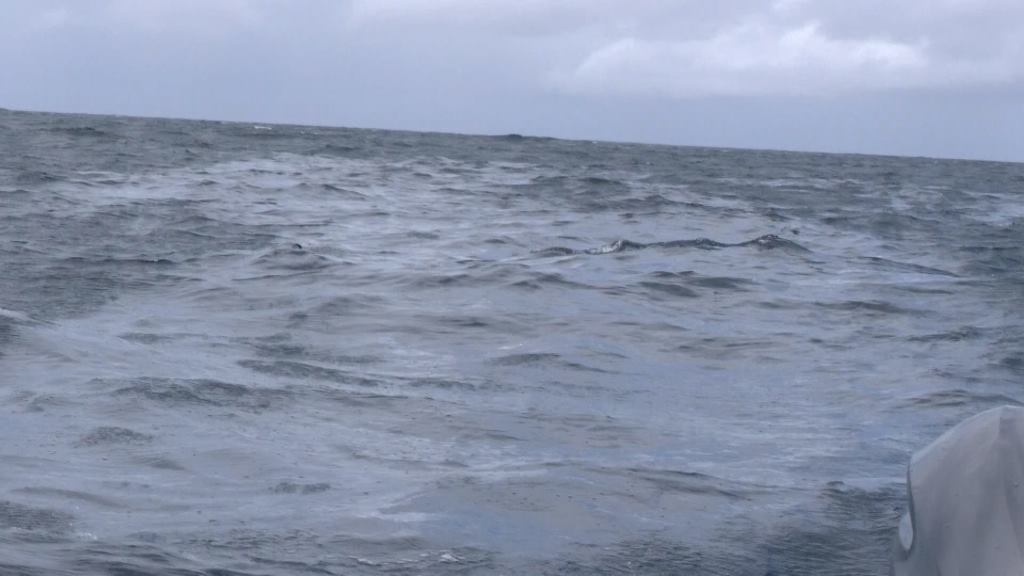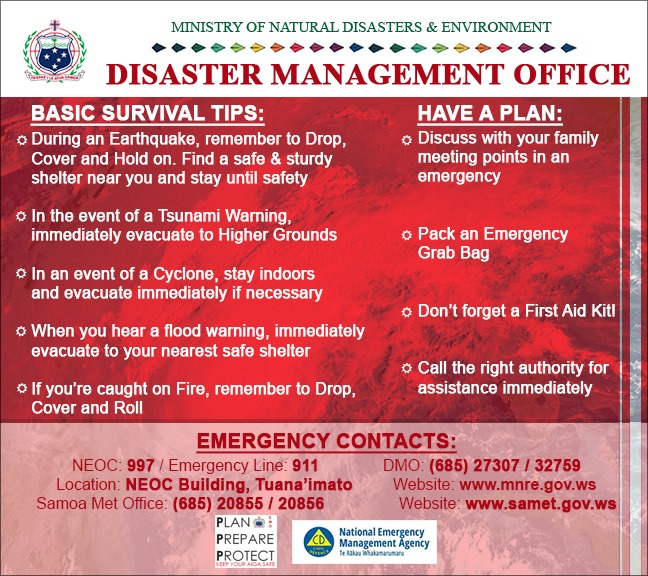Environment
CONFIRMED: HMNZS Manawanui is leaking oil from 3 separate locations

By Staff Reporters/
Apia, Samoa – 10 October 2024 – The Marine Pollution Advisory Committee (MPAC) has confirmed that the HMNZS Manawanui is leaking oil from three separate locations.
The Committee’s observations are via the New Zealand Defense Force in collaboration with the Ministry of Natural Resources and Environment (MNRE) “shows that whilst the leak continues, it is reducing each day.”
In a statement today, MPAC said the residual oil leakage is from the service tanks of the vessel where the engine room is and where the fire had broken out. It is believed that the majority of the fuel was burnt out, and it is the residual oil that is emanating from the sunken vessel.
The oil sheens floating on the surface of the ocean “has been observed to naturally evaporate and dissipate quickly due to the strong winds in the area,” according to the MPAC statement.
MPAC emphasized that “It is important to note that there continues to be no trace of oil contamination that has washed up onshore, as of 8AM today, October 10. It is imperative to contain the persisting leakages; whilst it is reducing, the goal is to stop it as soon as possible.”

One of three containers from HMNZS Manawanui being washed to shore on neightboring Tafitoala village.
There was a community engagement program with neighbouring Tafitoala village “to ensure our local communities are given the right information about this matter.”
Also discussed in today’s meeting is the removal of the ships anchor and three washed up shipping containers from the HMNZS Manawanui caught on the reef off the coast of Tafitoala, with focus on how to do so without causing more damage to the reef.
Initial reports said about 5000 square metres of reef has been damaged by HMNZS Manawanui when it went down and close to a marine reserve on neighbouring Satafa district.
There are close to 1,000 tonnes of fuel still on the vessel that the divers have been working to contain.
Yesterday, Talamua Reporter Lagi Keresoma was among the few media who were allowed to inspect the area where the vessel sank and spoke to the divers at work in assessing the damage.
The conditions were very windy and treacherous and the team waited until it was safe to get out on the water and out on the reef.
“What was noticeable was the strong smell and odour the pungent petrol fumes especially at the spot where the vessel sank,” Lagi reported.
She also confirmed the oil slick on the water surface, quite noticeable despite the shifting current and strong winds.

The team of divers that retrieved the vessels data recorder yesterday.
Speaking to Talamua, two divers Ensign Diver Sam King and Abel Diver Tyler Doole who were part of the 21 divers that assessed the situation and of any leakage.
“It is very important to ensure that diesel does not leak out and it is also vital for the public to be aware that floating on the surface of the sea is light fuel,” able diver Tyler Doole told Talamua.
He said the situation is not as bad as they thought and it could have been worse and they are doing everything they can in medicating the damage.
Doole confirmed “the vessel’s fuel tanks are well sealed and it is the residual light diesel fuel that leaked out and is currently floating on the surface.”
This explanation however did not stop concerns from residents around the area who are asking “how long will it stay sealed before it bursts and creates more problems to the marine ecosystem.”
Manawanui data recorder recovered
Ensign Diver Sam King was assigned to survey, inspect and recover any item of interest from the wreck and there were quite a lot of things missing from the vessel which they believed had washed ashore.
“One of the items of interest recovered is the vessel’s voyage data recorder which will tell us where the vessel had been and what happened,” said King.
He was emotional when he shared his experience from yesterday as he had done work on HMNZS Manawanui before.
“Luckily, there was no oil but light fuel and that is important going forward especially for our safety when we go down and also to stop any more damage to the environment,” said Doole.
“It was a real experience to go down and look at a ship that recently sank, especially when it’s one of our own, is quite surreal and rather distressing,” said Doole.



















